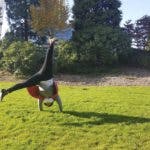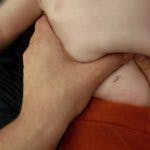Spina bifida, other myelomeningocele diagnoses, paralysis, tethered cord, paraparesis, brain tumors, and other neurological diseases can all affect the nerves that work to help the bowel, bladder, and pelvic floor work. When there is disruption in the neurological system, the organs and brain may not receive the messages needed to help manage pee and poop effectively.
Often, children with any of these diagnoses can improve their toileting through changing their habits related to toileting, making modifications, exercises or manual work, and other treatment methods that a pelvic floor physical therapist can provide. Because of the severity or permanence of some of these disease processes, it may not be likely that a child will reach independent toileting in all circumstances. There are other circumstances when the neurological disease can change, improve, or be surgically repaired. In these cases, therapy can help a child recover from the period of time they were affected (such as with tethered cord), and work to improve their bowel and bladder habits to be as effective as possible.
Blog Articles



